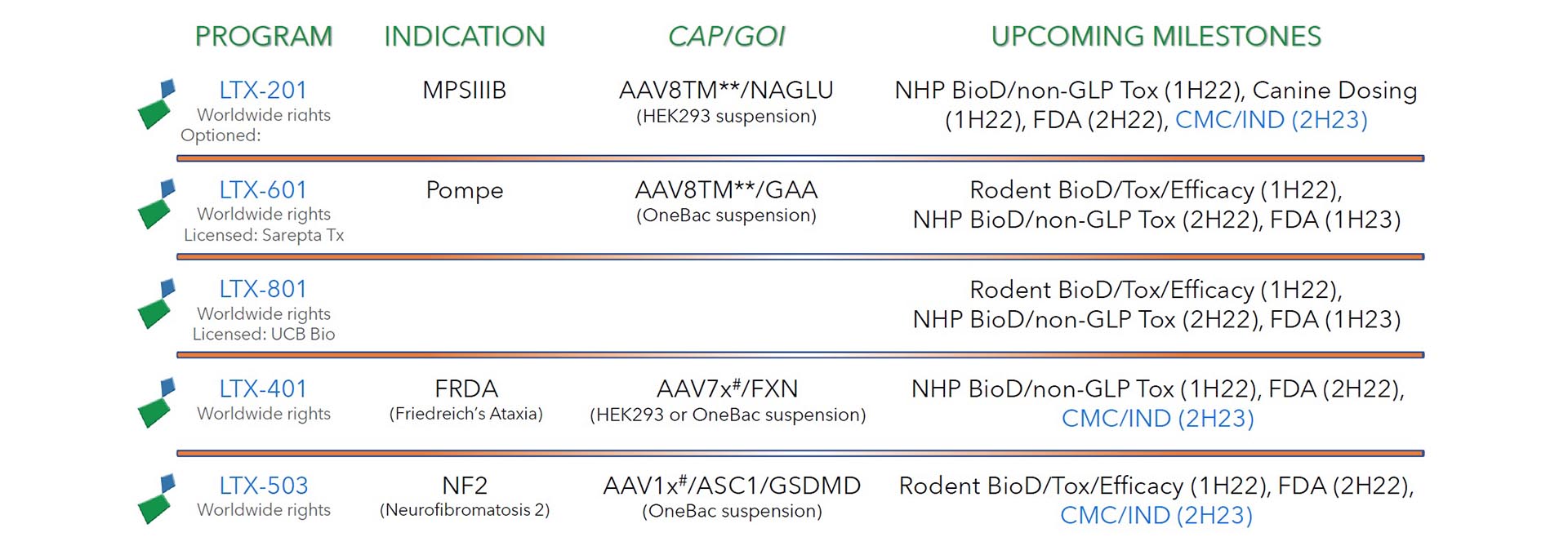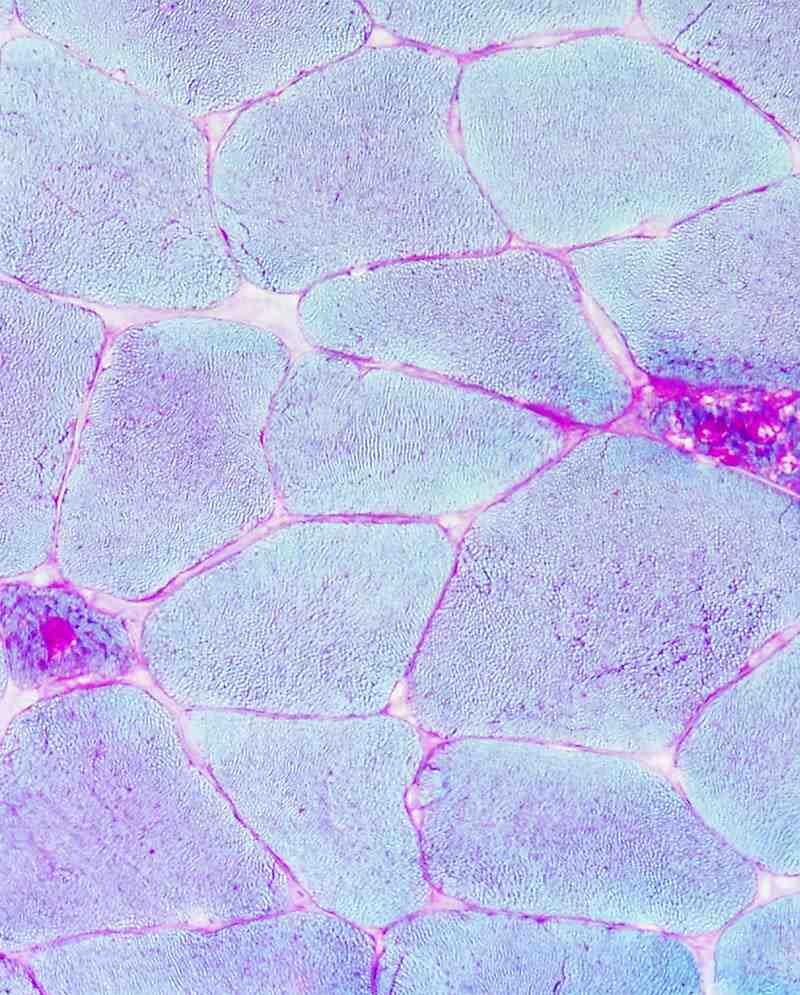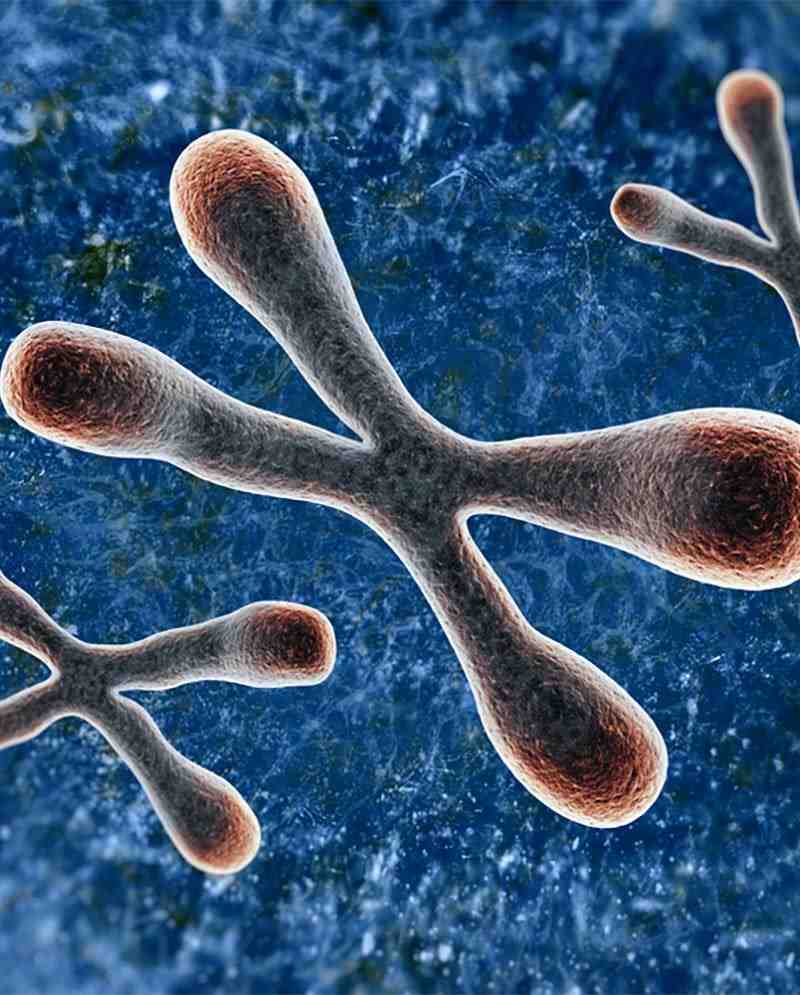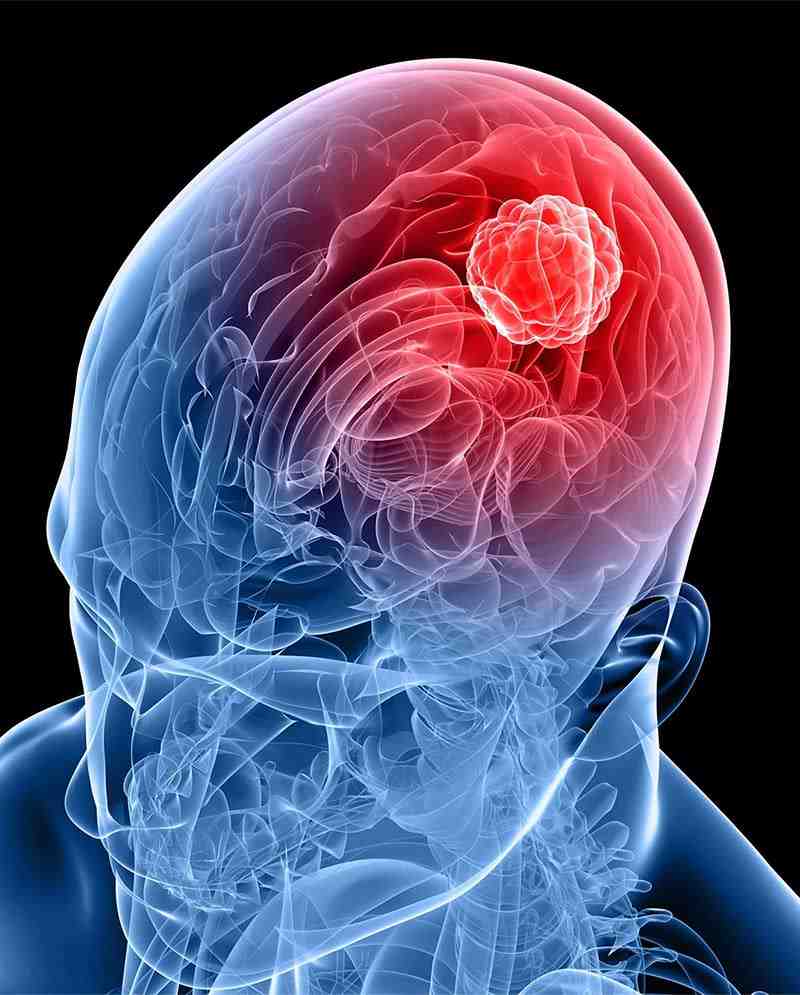Programs & Pipeline
Explore Our Programs & Pipeline
LEVERAGING DECADES OF EXPERTISE TO DEVELOP NEXT GENERATION THERAPIES
Our therapeutic programs are focused on exploiting our proprietary capsid technology and scalable manufacturing platform to advance AAV-based therapies via three primary approaches: gene replacement, vectorized antibody, and vectorized micro-RNA modulation.

CNS Targeted Therapies
LYSOSOMAL STORAGE DISEASES
POMPE DISEASE
Classically defined by the buildup of lysosomal glycogen, Pompe Disease is a genetic disorder that is caused by a mutation in the GAA gene.
Read More
This gene encodes for the enzyme acid alpha-glucosidase, that is responsible for breaking down lysosomal glycogen. Accumulation of glycogen has a profoundly negative impact on heart and neuromuscular function, but symptoms vary depending on the age at which the disease appears. Pompe disease covers a wide phenotypic spectrum where patients may be diagnosed as infants, adolescents, or adults.
Our Approach
Lacerta incorporates AAV capsids carrying desired properties to address each disease component to improve the patient’s quality of life.
MUCOPOLYSACCHARIDOSIS TYPE IIIB (MPSIIIB)
Also known as Sanfilippo Syndrome B, is a disorder caused by mutations in the NAGLU gene and is characterized by progressive motor and cognitive deterioration.
Read More
This gene encodes for the enzyme acid alpha-glucosidase, that is responsible for breaking down lysosomal glycogen. Accumulation of glycogen has a profoundly negative impact on heart and neuromuscular function, but symptoms vary depending on the age at which the disease appears. Pompe disease covers a wide phenotypic spectrum where patients may be diagnosed as infants, adolescents, or adults.
Our Approach
Our patent-pending strategy uses a proprietary capsid to deliver a functional copy of NAGLU to the cells affected by this disease.
MUCOPOLYSACCHARIDOSIS TYPE IIIB (MPSIIIB)
Also known as Sanfilippo Syndrome B, is a disorder caused by mutations in the NAGLU gene and is characterized by progressive motor and cognitive deterioration
Our Approach
Our patent-pending strategy uses a proprietary capsid to deliver a functional copy of NAGLU to the cells affected by this disease.
ATAXIAS
FRIEDREICH’S ATAXIA (FRDA OR FA)
FA is a rare mitochondrial disorder caused by mutations in the FXN gene and is characterized by ataxia, cardiomyopathy, and diabetes.
Read More
Our Approach
Our patent-pending therapeutic strategy is designed to deliver an enhanced copy of FXN via a proprietary capsid that displays the desired tropism for the central nervous system and heart.
NEURO-ONCOLOGY
GLIOBLASTOMA (GBM)
Glioblastoma is the most common and aggressive cancer of the brain.
Read More
Our Approach
We use select AAV capsid variants with high precision for glioblastoma cells to target key master regulators driving tumorigenesis.
GLIOBLASTOMA (GBM)
Glioblastoma is the most common and aggressive cancer of the brain.
Read More
Symptoms include loss of cognitive function, numbness in the face, arms, or legs, trouble with balance, nausea, vomiting, and headaches. Current standard treatments exert a large physical and financial toll on patients.
Our Approach
We use select AAV capsid variants with high precision for glioblastoma cells to target key master regulators driving tumorigenesis.




